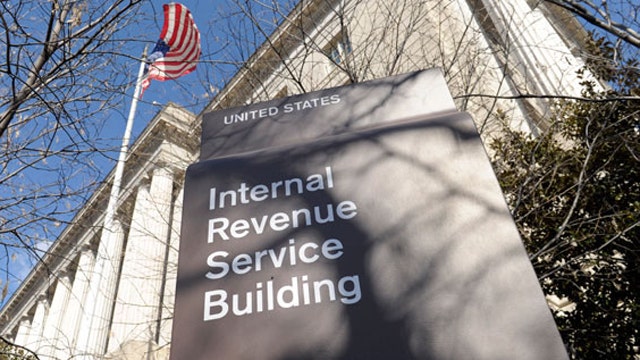Groups targeted by IRS finally hearing from FBI
Contact made 7 months after criminal investigation was supposed to have begun
And they thought we wouldn’t notice.
Late last year, the Internal Revenue Service (IRS) quietly announced a set of proposed regulations intended to restrain the political participation of tax-exempt 501(c)(4) social welfare organizations.
Of course, what constitutes “social welfare” will be left to the discretion of the same unchecked agency bureaucrats who bullied conservative and libertarian non-profits during the 2012 election cycle.
The first round of the IRS scandal exposed an institution-wide effort to obstruct Americans from exercising their First Amendment right to educate citizens on the issues and openly criticize bad public policy.
[pullquote]
Now, rather than preventing future intimidation tactics, the IRS is proposing we formalize these abuses as agency-wide practice.
Under existing rules, a 501(c)(4) social welfare organization must meet a primary purpose test - a minimum percentage threshold of activities that promote the IRS’s subjective definition of social welfare.
Any efforts or materials deemed “candidate-related political activity” by the IRS would lower that group’s primary purpose percentage, putting it at risk of losing tax-exempt status.
The new proposed rules paint “candidate-related political activity” with a dangerously wide brush. The restrictions are vague by design, allowing the agency more leeway to cherry-pick which groups can engage in civic engagement activities without fear of reprisal.
Non-partisan civic engagement activities, including voter registration drives and candidate forums within 30 days of a primary or 60 days of a general election, would detract from a group’s primary purpose.
Preparation or distribution of materials that refer to candidates (including sitting lawmakers) within 60 days of an election would also put a group at risk of losing its tax-exempt status, even if they are simply outlining an active lawmaker’s voting history.
The IRS has stepped beyond formalizing its ad hoc abuses of conservatives -- it has begun to institutionalize incumbency in politics.
Since when did the IRS grant itself the power to decide which citizens are allowed to criticize their congressmen on what specific calendar days?
What happened to a government by the people, for the people, that encouraged citizens to remain eternally critical of bad policy?
Proponents of further restricting 501(c)(4) activity claim that these new rules are crucial to get dark money out of politics once and for all, completely overlooking the complexity axiom of politics: the more complicated the rules, the bigger the advantage for big-money interests in Washington.
The Beltway “professionals” have the resources to hire the lawyers and accountants necessary to navigate the regulations, leaving the smaller local groups buried under piles of administrative paperwork and technical hurdles. Although maybe that’s the point.
The IRS tried to rationalize the new rules as a means to prevent disproportionate paperwork burdens on specific non-profits, explaining in a news release, “Today’s proposed guidance would reduce the need to conduct fact-intensive inquiries by replacing this test with more definitive rules.”
In other words, the agency’s plan to prevent future targeting of conservative and libertarian non-profits is to regulate those groups out of existence.
Eliminate the victims of IRS discrimination, and there are no instances of abuse to report.
To make matters worse, the timing of the announcement was a strategic sucker punch to those already victimized by the agency-wide discriminatory practices. The proposal was whispered over the holiday season (in hopes that nobody would notice) with a very short period of time for public debate ending on February 27.
The American people deserve to get answers directly from the gray-suited bureaucrats who wrote these rules on what exactly defines “social welfare” in the eyes of the IRS.
Activists like Becky Gerritson from the Wetumpka Tea Party in Alabama, and Dianne Belsom from the Laurens County Tea Party in South Carolina, deserve to hear exactly how their rights will be safeguarded against the abuses they endured in 2012.
The proposed IRS regulations are nothing more than an expansion of the closed-door, insider tactics implemented in 2012 to shut the American people out of the democratic process.
It’s patently unfair to suppress any citizen from exercising their civic duty, especially during an election year. Before the opportunity for public debate is lost, citizens must act quickly to demand public hearings and submit comments to www.IRStarget.com in protest of these biased and harmful new restrictions.









































